Ditapis dengan

E-book The Order of People: Constenting Bio-Scientific Human Classifications
Bioscientific concepts of human diversity and politics of inequality have long been intertwined in efforts to order and classify people. The contributors to this volume critically examine the particular ways in which these concepts are constituted and applied across various national contexts and within different life science disciplines, including genetics, medicine, forensics, anthropology, ep…
- Edisi
- -
- ISBN/ISSN
- 9783839472378
- Deskripsi Fisik
- 348 hlmn
- Judul Seri
- -
- No. Panggil
- 301.01 ELL t

E-book Newton and the Netherlands How Isaac Newton was Fashioned in the Dutc…
In the course of the eighteenth century, Newton's ideas (in different guises and interpretations) became a veritable hype in Dutch society. In Newton & the Netherlands Newton's sudden success is analyzed in great depth and put into a new perspective. URI
- Edisi
- -
- ISBN/ISSN
- 9789087281373
- Deskripsi Fisik
- 256 hlmn
- Judul Seri
- -
- No. Panggil
- 530.092 JUR n
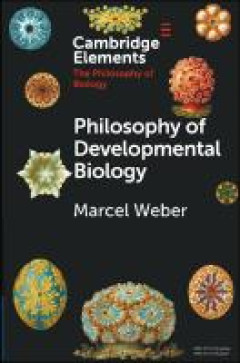
E-book Philosophy of Developmental Biology
The history of developmental biology is interwoven with debates as to whether mechanistic explanations of development are possible or whether alternative explanatory principles or even vital forces need to be assumed. In particular, the demonstrated ability of embryonic cells to tune their developmental fate precisely to their relative position and the overall size of the embryo was once though…
- Edisi
- -
- ISBN/ISSN
- 9781108954181
- Deskripsi Fisik
- -
- Judul Seri
- -
- No. Panggil
- 570.1 WEB p
E-book Guidelines for Soil Description
The main objective of research in soil science is the understanding of the nature, properties, dynamics and functions of the soil as part of landscapes and ecosystems. A basic requirement for attaining that objective is the availability of reliable information on soil morphology and other characteristics obtained through examination and description of the soil in the field. It is important that…
- Edisi
- -
- ISBN/ISSN
- -
- Deskripsi Fisik
- 109 hlm
- Judul Seri
- -
- No. Panggil
- 631.4 FAO g
E-book Against the Fetishisation of Plural Time
This book raises three interlinked questions: first, how to do a social history of time; second, what are the ways in which it can be done without succumbing to the usual, and at times inevitable, pull of some of the useful binaries in which most of the historical accounts of time have been written; and third, how, as a result of overcoming some of these binaries, do we go beyond simply sta…
- Edisi
- -
- ISBN/ISSN
- 9783111696492
- Deskripsi Fisik
- 133 hlm
- Judul Seri
- -
- No. Panggil
- 300.1 SIN a

E-book How Modern Science Came into the World Four Civilizations, One 17th-C…
Once upon a time 'The Scientific Revolution of the 17th century' was an innovative concept that inspired a stimulating narrative of how modern science came into the world. Half a century later, what we now know as 'the master narrative' serves rather as a strait-jacket — so often events and contexts just fail to fit in. No attempt has been made so far to replace the master narrative. H. Flori…
- Edisi
- -
- ISBN/ISSN
- 9781040777381
- Deskripsi Fisik
- 824 hlmn
- Judul Seri
- -
- No. Panggil
- 509.532 COH h
E-book State of Empowerment : Low-Income Families and the New Welfare State
At around 3:00 on weekday afternoons, dismissal bells ring at thousands of schools across the country. For millions of students, these bells signal not just the end of the school day but also the beginning of another important educa-tional activity: federally funded after-school programs offering tutoring, homework help, and basic supervision.At Jackson Elementary1 in Chicago, the end o…
- Edisi
- -
- ISBN/ISSN
- 9780472131648
- Deskripsi Fisik
- 179 hlm
- Judul Seri
- -
- No. Panggil
- 320 BAR s
E-book In a Wounded Land : Conservation, Extraction, and Human Well-Being in …
TANGANYIKA (TANZANIA SINCE 1964) was part of German East Africa from 1885 to 1918. It became a British League of Nations mandate between 1922 and 1946 and a British United Nations Trusteeship Terri-tory between 1946 and 1961. On December 9, 1961, Tanganyika gained independence from the British, and in 1964 it merged with Zanzibar, a former British protectora…
- Edisi
- -
- ISBN/ISSN
- 9780816553099
- Deskripsi Fisik
- 373 hlm
- Judul Seri
- -
- No. Panggil
- 320 KAM i
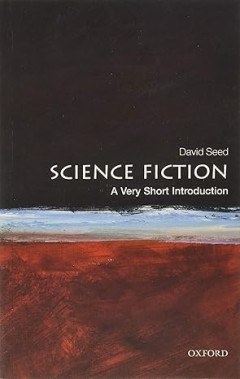
E-book Science Fiction: A Very Short Introduction
Frankenstein, The Time Machine, Star Trek, Dune, 1984, Blade Runner--science fiction has been explained as a combination of romance, science, and prophecy; as a genre based on an imagined alternative to the reader's environment; and as a form of fantastic fiction and historical literature. It has also been argued that science fiction narratives are the most engaged, socially relevant, and respo…
- Edisi
- -
- ISBN/ISSN
- 9780199557455
- Deskripsi Fisik
- 161 halaman
- Judul Seri
- -
- No. Panggil
- 001.9 SEE s
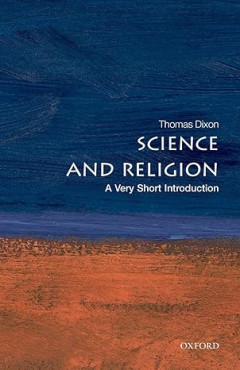
E-book Science and Religion: A Very Short Introduction
The debate between science and religion is never out of the news: emotions run high, fuelled by polemical bestsellers like The God Delusion and, at the other end of the spectrum, high-profile campaigns to teach "Intelligent Design" in schools. Yet there is much more to the debate than the clash of these extremes. As Thomas Dixon shows in this balanced and thought-provoking introduction, a whole…
- Edisi
- -
- ISBN/ISSN
- 9780199295517
- Deskripsi Fisik
- 169 halaman
- Judul Seri
- -
- No. Panggil
- 215 DIX s
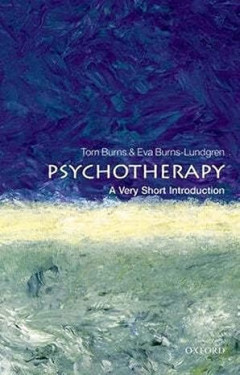
E-book Psychotherapy: A Very Short Introduction
Psychotherapy and counselling are now widely available to help people overcome emotional and psychological difficulties in their lives. They involve spending time with a professional in an emotionally safe and structured relationship to explore and express the issues that cause distress and difficulty, such as long term self-doubts, relationship problems, or the impact of a trauma or crisis. As…
- Edisi
- -
- ISBN/ISSN
- 9780199689361
- Deskripsi Fisik
- 346 halaman.
- Judul Seri
- -
- No. Panggil
- 131 BUR p
E-book A History of Museology
Is museology a theory or a set of practices? Is it a science or just museum work? Is it the same as museum theory? Or is it autonomous from the museum? Is it a philosophy or is it based on social experimentation? Are we evolving towards the path of a metamuseology? If so, what are the boundaries of this ‘museology’ that has shown to have no boundaries in the past decades of theoretical rese…
- Edisi
- -
- ISBN/ISSN
- 9789290124566
- Deskripsi Fisik
- 232 hlm
- Judul Seri
- -
- No. Panggil
- 069 CHU a
E-book Key Concepts of Museology
What is a museum? How do we defi ne a collection? What is an institution? What does the term ‘heritage’ encompass? Museum professionals have inevitably developed answers to questions such as these, which are fundamental to their work, compiled according to their knowledge and experience. Do we need to reconsider these? We believe so. Museum work shifts back and forth between practice and th…
- Edisi
- -
- ISBN/ISSN
- 9782200253981
- Deskripsi Fisik
- 90 hlm
- Judul Seri
- -
- No. Panggil
- 069 DES k
E-book Working Through Colonial Collections
his research was funded by the Alexander von Humboldt Foundation as part of the research award for Sharon Macdonald’s Alexander von Humboldt Professorship, and was carried out at the Centre for Anthropological Research on Museums and Heritage (CARMAH) at the Department for European Ethnology, Humboldt-Universität zu Berlin. I also received financial support from the Ge…
- Edisi
- -
- ISBN/ISSN
- 9789461664242
- Deskripsi Fisik
- 320 hlm
- Judul Seri
- -
- No. Panggil
- 069 VON w
E-book State Fragility
Fragile states expose their societies to the risk of meltdown or collapse, endangering the lives of their citizens and leaving them unable to sustain ordinary life. When this happens, famine, violent disorder and economic distress can displace many millions of people, with consequent impacts on surrounding regions. State fragility can also threate…
- Edisi
- -
- ISBN/ISSN
- 9781003297697
- Deskripsi Fisik
- 345 hlm
- Judul Seri
- -
- No. Panggil
- 320 BIZ s
E-book Governance Democracy and Development in Latin America and the Carribean
The way in which these six problems interact has far-reaching consequences for the day-to-day conduct of public affairs, the rights and freedoms of citizens and the legitimacy of the democratic system. The assessment points to the economic vulnerability of the lower middle class, due to the fragmentation of the labor market (formalityinformality, low-high productivity) and the segmentation of …
- Edisi
- -
- ISBN/ISSN
- -
- Deskripsi Fisik
- 53 hlm
- Judul Seri
- -
- No. Panggil
- 320.8 CAS g
E-book The Museum Accessibility Spectrum : Re-imagining Access and Inclusion
Central to the practice of the modern museum sector are the principles of access, inclusion, diversity, sustainability, and community participation (ICOM, 2022). As the curators of our cultural and social histories, the heritage sector is morally and legally required to provide reasonable adjustments to ensure equitable access or all people. The dictionary definition of access is the me…
- Edisi
- -
- ISBN/ISSN
- 9781003382713
- Deskripsi Fisik
- 313 hlm
- Judul Seri
- -
- No. Panggil
- 069 EAR t
E-book The Aftermaths of Participation
It has been seven years since the so-called refugee crisis in Europe, andwarfarecontinuestoforcepeopletoleavetheirhomelandstosettleelsewhere.AsIamwritingthis,inAprilof2022,RussiantroopsaretearingapartUkraineand the lives of its people, forcing many people to flee their homes. Forcedmigration is not temporary phenomenon, and historical, ethnographic andcity museums will –one wayor another –c…
- Edisi
- -
- ISBN/ISSN
- 9783839464113
- Deskripsi Fisik
- 273 hlm
- Judul Seri
- -
- No. Panggil
- 069 BOE t
E-book The Struggle for Abolition : Power and Legitimacy in Multilateral Nucl…
What ought we do about the bomb? The official answer given by effectively all the world’s states is abolition. To be sure, the current nuclear-armed states are for all intents and purposes resolved to retain and renew their arsenals for the foreseeable future. Disarmament rhetoric has persistently been belied by enormous investments in warheads, missiles, bombers, and submarines. Yet, on the …
- Edisi
- -
- ISBN/ISSN
- 9781003456841
- Deskripsi Fisik
- 222 hlm
- Judul Seri
- -
- No. Panggil
- 320 EGE t
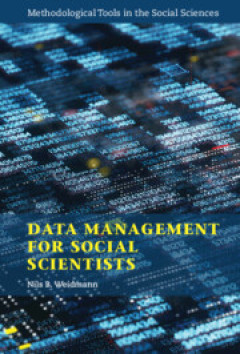
E-book Data Management for Social Scientists: From Files to Databases
The 'data revolution' offers many new opportunities for research in the social sciences. Increasingly, social and political interactions can be recorded digitally, leading to vast amounts of new data available for research. This poses new challenges for organizing and processing research data. This comprehensive introduction covers the entire range of data management techniques, from flat files…
- Edisi
- -
- ISBN/ISSN
- 9781108990424
- Deskripsi Fisik
- 242 halaman, ilus.
- Judul Seri
- -
- No. Panggil
- 004 WEI d
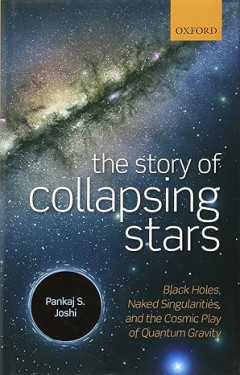
E-book The Story of Collapsing Stars: Black Holes, Naked Singularities, and t…
This book journeys into one of the most fascinating intellectual adventures of recent decades - understanding and exploring the final fate of massive collapsing stars in the universe. The issue is of great interest in fundamental physics and cosmology today, from both the perspective of gravitation theory and of modern astrophysical observations. This is a revolution in the making and may be in…
- Edisi
- -
- ISBN/ISSN
- 9780199686766
- Deskripsi Fisik
- 240 halaman, ilus.
- Judul Seri
- -
- No. Panggil
- 523.01 JOS t
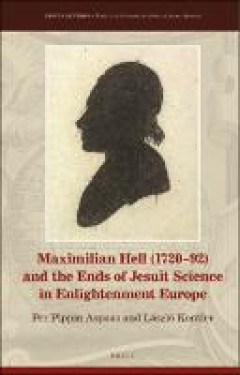
E-book Maximilian Hell (1720–92) and the Ends of Jesuit Science in Enlighte…
The Viennese Jesuit astronomer Maximilian Hell was a nodal figure in the eighteenth-century circulation of knowledge. This study of his career sheds light on the Enlightenment, Catholicism, reform in the Habsburg monarchy, and the cultivation of science in the Republic of Letters. Readership: Anyone interested in eighteenth-century Central Europe and Scandinavia, in the production and circulati…
- Edisi
- -
- ISBN/ISSN
- 490
- Deskripsi Fisik
- 490 halaman, ilus.
- Judul Seri
- -
- No. Panggil
- 215 ASP m
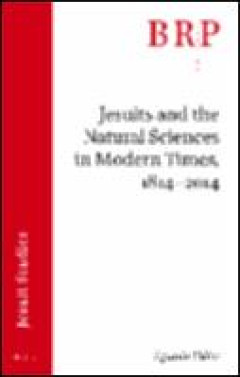
E-book Jesuits and the Natural Sciences in Modern Times, 1814–2014: Brill's…
From 1814, linked to their educational work, Jesuits made significant contributions to the natural sciences, especially in the fields of astronomy, meteorology, seismology, terrestrial magnetism, mathematics, and biology in a worldwide network of universities, secondary schools and observatories.; Readership: All interested in the history of Jesuits and their contribution to the natural science…
- Edisi
- -
- ISBN/ISSN
- 9789004394896
- Deskripsi Fisik
- 110 halaman
- Judul Seri
- -
- No. Panggil
- 500.0 UDI j

E-book The Oxford Handbook of Political Theory
Long recognized as one of the main branches of political science, political theory has in recent years burgeoned in many different directions. Close textual analysis of historical texts sits alongside more analytical work on the nature and normative grounds of political values. Continental and post-modern influences jostle with ones from economics, history, sociology, and the law. Feminist conc…
- Edisi
- -
- ISBN/ISSN
- 9780199548439
- Deskripsi Fisik
- 898 halaman
- Judul Seri
- -
- No. Panggil
- 320 DRY t
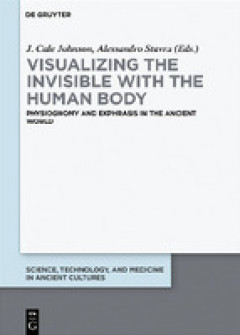
E-book Visualizing The Invisible with The Human Body
Physiognomy and ekphrasis are two of the most important modes of description in antiquity and represent the necessary precursors of scientific description. The primary way of divining the characteristics and fate of an individual, whether inborn or acquired, was to observe the patient’s external characteristics and behaviour. This volume focuses initially on two types of descriptive literatur…
- Edisi
- -
- ISBN/ISSN
- 9783110642681
- Deskripsi Fisik
- 509 halaman
- Judul Seri
- -
- No. Panggil
- 138 JOH v
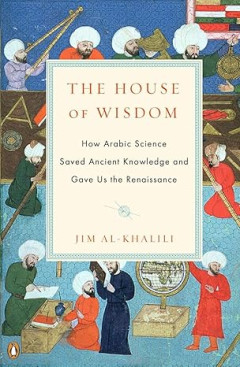
E-book The House of Wisdom: How Arabic Science Saved Ancient Knowledge and Ga…
A myth-shattering view of the Islamic world's myriad scientific innovations and the role they played in sparking the European Renaissance. Many of the innovations that we think of as hallmarks of Western science had their roots in the Arab world of the middle ages, a period when much of Western Christendom lay in intellectual darkness. Jim al- Khalili, a leading British-Iraqi physicist, resurr…
- Edisi
- -
- ISBN/ISSN
- 9780143120568
- Deskripsi Fisik
- 426 halaman, ilus.
- Judul Seri
- -
- No. Panggil
- 509.2 KHA t
E-book Eskalation : G20 in Hamburg, Protest und Gewalt
Am 7. und 8. Juli 2017 versammelten sich in den Hamburger Messehallen Vertreter*innen der reichsten Länder der Welt für das Treffen der Gruppe der 20. Verschiedene Bündnisse und Initiativen riefen zu Protesten gegen das Treffen auf. Organisiert wurde ein vielfältiges Repertoire an Protest-aktionen, das von einem Gegengipfel und Protestcamps über Performan-ces, …
- Edisi
- -
- ISBN/ISSN
- 9783868543735
- Deskripsi Fisik
- 290 hlm
- Judul Seri
- -
- No. Panggil
- 320 MAL e
E-book Do Exclusionary Rules Ensure a Fair Trial? : A Comparative Perspective…
Criminal justice systems are barometers of social development. This claim, putforward by German criminal law scholars,1alludes to the fact that inherent in thecriminal justice process are conflicting interests between the need to ensure comprehensive fact-finding on the one hand, and the wish to safeguard individual rights,especially those of defendants, on the other hand. In all criminal justi…
- Edisi
- -
- ISBN/ISSN
- 9783030125202
- Deskripsi Fisik
- 387 hlm
- Judul Seri
- -
- No. Panggil
- 320 CHE d
E-book Wallerstein 2.0 : Thinking and Applying World-Systems Theory in the 21…
Immanuel Wallerstein is often named“the master of the field”2when scholarsdiscuss world-systems theory, and while there are others whose works pavedthe way for this kind of analysis,3it is true that the former had a prominentposition within the field he helped to create. Wallerstein, however, would notonly be perceived as a “worldwide renowned and influential sociologist andeconomic histo…
- Edisi
- -
- ISBN/ISSN
- 9783839460443
- Deskripsi Fisik
- 181 hlm
- Judul Seri
- -
- No. Panggil
- 300.1 BAS w
E-book Data Power : Radical Geographies of Control and Resistance
One step after another, each recorded and located by the Global Position-ing System (GPS) and shared with the world. Sequential steps repeated daily in our morning run or commute become part of an economic cycle of digital tracking, extracting our location data and serving parts back to us as directions, as ads, as insurance rates. And also as egregious privacy violations which set …
- Edisi
- -
- ISBN/ISSN
- 9781786805560
- Deskripsi Fisik
- 177 hlm
- Judul Seri
- -
- No. Panggil
- 004 THA d
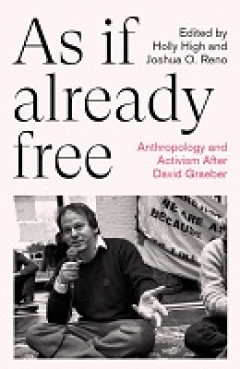
E-book As If Already Free: Anthropology and Activism After David Graeber
A highly original thinker' - New York Times David Graeber (1961–2020) was an American anthropologist and anarchist activist, who left us with new ways to understand humankind. This collection of new writing brings together his insights into one book, showing how deeply his work continues to influence us today. Graeber’s writing resonates with both scholars and activists looking to shake thi…
- Edisi
- -
- ISBN/ISSN
- 9780745348452
- Deskripsi Fisik
- 241 halaman
- Judul Seri
- -
- No. Panggil
- 320 HIG a
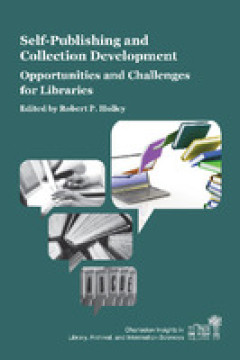
E-book Self-Publishing and Collection Development: Opportunities and Challeng…
The current publishing environment has experienced a drastic change in the way content is created, delivered, and acquired, particularly for libraries. With the increasing importance of digital publishing, more than half the titles published in the United States are self-published. With this growth in self-published materials, librarians, publishers, and vendors have been forced to rethink chan…
- Edisi
- -
- ISBN/ISSN
- 9781557539687
- Deskripsi Fisik
- 198 halaman
- Judul Seri
- -
- No. Panggil
- 020 HOL s
E-book Making Sense of the Arab State
For scholars of the Arab world, the state remains an elusive, unsettled, and unsettling presence. Since mandatory and then independent states emerged in the Arab world in the aftermath of World War I, theorizing the Arab state has been a central preoccupation for generations of regional specialists. The gravitational pull of the state is not surprising. As a pr…
- Edisi
- -
- ISBN/ISSN
- 9780472904617
- Deskripsi Fisik
- 309 hlm
- Judul Seri
- -
- No. Panggil
- 320 AND m
E-book The China Alternative : Changing Regional Order in the Pacific Islands
The Pacific Islands region has entered a new period of uncertainty precipitated in large part by the emergence of China as a major regional actor as well as the reaction of more established powers to perceived threats to their longstanding influence. In March 2019, in the wake of a flurry of activity on the part of Australia, New Zealand and the United States …
- Edisi
- -
- ISBN/ISSN
- 9781760464172
- Deskripsi Fisik
- 520 hlm
- Judul Seri
- -
- No. Panggil
- 320 AQO t
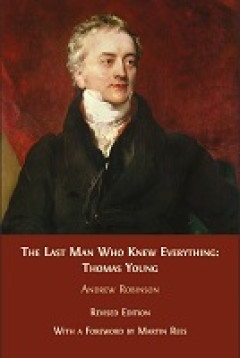
E-book The Last Man Who Knew Everything
No one has given the polymath Thomas Young (1773–1829) the all-round examination he so richly deserves—until now. Celebrated biographer Andrew Robinson portrays a man who solved mystery after mystery in the face of ridicule and rejection, and never sought fame. As a physicist, Young challenged the theories of Isaac Newton and proved that light is a wave. As a physician, he showed how the ey…
- Edisi
- -
- ISBN/ISSN
- 9781805110187
- Deskripsi Fisik
- 298 halaman, ilus.
- Judul Seri
- -
- No. Panggil
- 920.71 ROB t
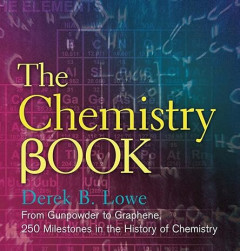
E-book The Chemistry Book: From Gunpowder to Graphene, 250 Milestones in the …
From atoms and fluorescent pigments to sulfa drug synthesis and buckyballs, this lush and authoritative chronology presents 250 milestones in the world of chemistry. As the "central science" that bridges biology and physics, chemistry plays an important role in countless medical and technological advances. Covering entertaining stories and unexpected applications, chemist and journalist Derek B…
- Edisi
- -
- ISBN/ISSN
- 9781454917281
- Deskripsi Fisik
- 811 halaman, ilus.
- Judul Seri
- -
- No. Panggil
- 540 LOW t
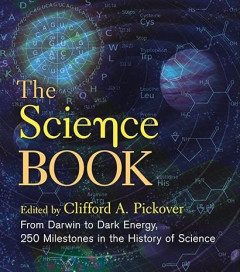
E-book The Science Book: From Darwin to Dark Energy, 250 Milestones in the Hi…
From astronomy to psychology, this beautifully illustrated chronology presents the most important and groundbreaking milestones in science. Award-winning author Cliff Pickover (The Math Book, The Physics Book, and The Medical Book) gathers into one fully illustrated volume the most important thinkers and ideas in the history of science. This unique omnibus edition includes 250 thoughtfu…
- Edisi
- -
- ISBN/ISSN
- 9781454933007
- Deskripsi Fisik
- 779 halaman, ilus.
- Judul Seri
- -
- No. Panggil
- 500.0 PIC t
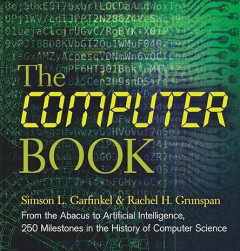
E-book The Computer Book: From the Abacus to Artificial Intelligence, 250 Mil…
With 250 illustrated landmark inventions, publications, and events—encompassing everything from ancient record-keeping devices to the latest computing technologies—this highly topical addition to the Sterling Milestones series takes a chronological journey through the history and future of computer science. Two expert authors, with decades’ of experience working in computer research and i…
- Edisi
- -
- ISBN/ISSN
- 9781454926221
- Deskripsi Fisik
- 586 halaman, ilus.
- Judul Seri
- -
- No. Panggil
- 004.03 GAR t
E-book China Dreams
According to legend, the Jade Emperor called all twelve celestial animals to his palace to assign them their place in the zodiac. The Pig, a lazy if intelligent creature, was still in dreamland when the other eleven turned up to claim their places. He ended up last. And so 2019, the eventful Year of the Pig (coincidentally also marked by swine fever and a severe pork supply shor…
- Edisi
- -
- ISBN/ISSN
- 9781760463748
- Deskripsi Fisik
- 328 hlm
- Judul Seri
- -
- No. Panggil
- 320 GOL c
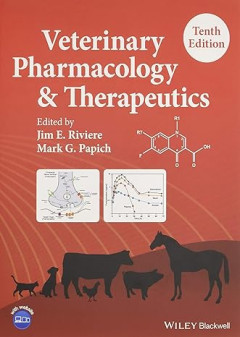
E-book Veterinary Pharmacology and Therapeutics
eterinary Pharmacology and Therapeutics, Tenth Edition is a fully updated and revised version of the gold-standard reference on the use of drug therapy in all major veterinary species. Provides current, detailed information on using drug therapies in all major domestic animal species Organized logically by drug class and treatment indication, with exhaustive information on the rational us…
- Edisi
- -
- ISBN/ISSN
- 9781118855881
- Deskripsi Fisik
- 1550 halaman, ilus.
- Judul Seri
- -
- No. Panggil
- 636.089 RIV v
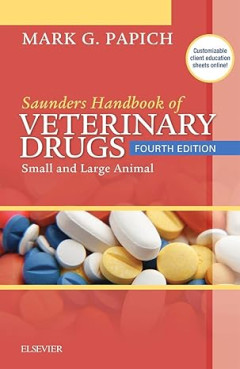
E-book Saunders Handbook of Veterinary Drugs: Small and Large Animal, 4th Edi…
Saunders Handbook of Veterinary Drugs, 4th Edition includes entries for 550 drugs, with convenient appendices summarizing clinically relevant information at a glance. New to this edition are 25 new drug monographs and easy access to drug content on any mobile device. Written by clinical pharmacology expert Mark Papich, this handy reference includes a companion website containing more than 150 c…
- Edisi
- Edisi 4
- ISBN/ISSN
- 9780323244855
- Deskripsi Fisik
- 932 halaman, ilus.
- Judul Seri
- -
- No. Panggil
- 636.089 PAP s
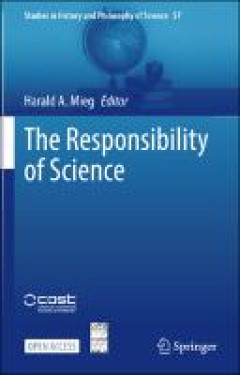
E-book The Responsibility of Science
This open access book provides an overview of issues of scientific responsibility. The volume comprises three types of contributions: first, analyses of the responsibility of science; second, analyses of the structural conditions for science and its responsibility; and third, normative versions of scientific responsibility. The questions and problems dealt with include science as a profession, …
- Edisi
- -
- ISBN/ISSN
- 9783030915971
- Deskripsi Fisik
- 258 halaman
- Judul Seri
- -
- No. Panggil
- 101 MIE t
E-book International Aid and Urban Change : Humanitarian Presence in Bamako, …
This work is the result of research started in 2014, on the processes of urban transformations in Bamako Juba, Nairobi and Abidjan in relation to the pres-ence and security policies of UN missions and international aid. The results of this research highlight an uneven process of territoriality where humanitarian organisations operate.The focus of this work or…
- Edisi
- -
- ISBN/ISSN
- 9783034345620
- Deskripsi Fisik
- 366 hlm
- Judul Seri
- -
- No. Panggil
- 320 DER i
E-book A Matter of Trust : Building Integrity into Data, Statistics and Recor…
The Sustainable Development Goals (SDGs) initiative has the potential to set the direction for a future world that works for everyone. The SDGs were approved by 193 United Nations member countries in September 2016 to help guide global and national development policies in the period to 2030. The 17 goals build on the successes of the Millennium Development Goals, while also includin…
- Edisi
- -
- ISBN/ISSN
- 9781912250356
- Deskripsi Fisik
- 269 hlm
- Judul Seri
- -
- No. Panggil
- 300.285 AMB a
E-book Come Hell or High Fever : Readying the World's Megacities for Disaster
Haruki Akamatsu had not felt the ocean crust heave 10 metres upward. He was not there to see the 6-metre tsunami surge inland, drowning thousands and clawing the earth bare with its retreat. He had, however, clutched the carpet beneath his desk as the twenty-first-floor office in Tokyo swayed sickeningly, thinking the worst was over when the swaying stopped. It was not, b…
- Edisi
- -
- ISBN/ISSN
- 9781760465544
- Deskripsi Fisik
- 499 hlm
- Judul Seri
- -
- No. Panggil
- 320 GLE c
E-book Altmetrics for Digital Libraries : Concepts, Applications, Evaluation,…
The continuing adoption of technology (i.e., computers, cell phones,and information systems) and the associated large-scale growth of information haveled to the “big data” movement (Diebold, 2012; Mayer-Schönberger & Cukier, 2013), where “big data” refers to the large volume of information that no longer fits in the memory that modern computers use for process…
- Edisi
- -
- ISBN/ISSN
- 9783832553098
- Deskripsi Fisik
- 292 hlm
- Judul Seri
- -
- No. Panggil
- 004.071 NUR a
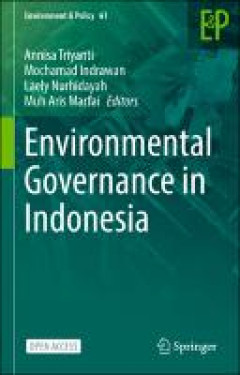
E-book Environmental Governance in Indonesia
This open access book presents the state-of-the-art environmental governance research and practices in Indonesia. It offers a wide scope, covering different sectors (e.g., forestry, mining) and geographical landscapes (e.g., inland and coastal areas). This book engages with existing theories and frameworks, including Earth System Governance, Adaptive and Interactive Governance, among others to …
- Edisi
- -
- ISBN/ISSN
- 9783031159046
- Deskripsi Fisik
- 513 halaman
- Judul Seri
- -
- No. Panggil
- 320 TRI e
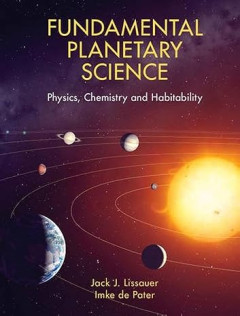
E-book Fundamental Planetary Science: Physics, Chemistry and Habitability
A quantitative introduction to the Solar System and planetary systems science for advanced undergraduate students, this engaging new textbook explains the wide variety of physical, chemical, and geological processes that govern the motions and properties of planets. The authors provide an overview of our current knowledge and discuss some of the unanswered questions at the forefront of research…
- Edisi
- -
- ISBN/ISSN
- 9780521618557
- Deskripsi Fisik
- 634 halaman
- Judul Seri
- -
- No. Panggil
- 523.2 LIS f
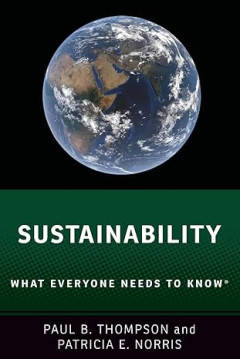
E-book Sustainability: What Everyone Needs to Know®
While politicians, entrepreneurs, and even school children could tell you that sustainability is an important and nearly universal value, many of them, and many of us, may struggle to define the term, let alone trace its history. What is sustainability? Is it always about the environment? What science do we need to fully grasp what it requires? What does sustainability mean for business? How ca…
- Edisi
- -
- ISBN/ISSN
- 9780190883232
- Deskripsi Fisik
- 273 halaman
- Judul Seri
- -
- No. Panggil
- 333.7 THO s
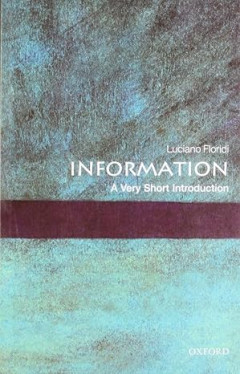
E-book Information: A Very Short Introduction
We live in a society that is awash with information, but few of us really understand what information is. In this Very Short Introduction, one of the world's leading authorities on the philosophy of information and on information ethics, Luciano Floridi, offers an illuminating exploration of information as it relates to both philosophy and science. He discusses the roots of the concept of infor…
- Edisi
- -
- ISBN/ISSN
- 9780199551378
- Deskripsi Fisik
- 130 halaman
- Judul Seri
- -
- No. Panggil
- 020 FLO i
 Karya Umum
Karya Umum  Filsafat
Filsafat  Agama
Agama  Ilmu-ilmu Sosial
Ilmu-ilmu Sosial  Bahasa
Bahasa  Ilmu-ilmu Murni
Ilmu-ilmu Murni  Ilmu-ilmu Terapan
Ilmu-ilmu Terapan  Kesenian, Hiburan, dan Olahraga
Kesenian, Hiburan, dan Olahraga  Kesusastraan
Kesusastraan  Geografi dan Sejarah
Geografi dan Sejarah